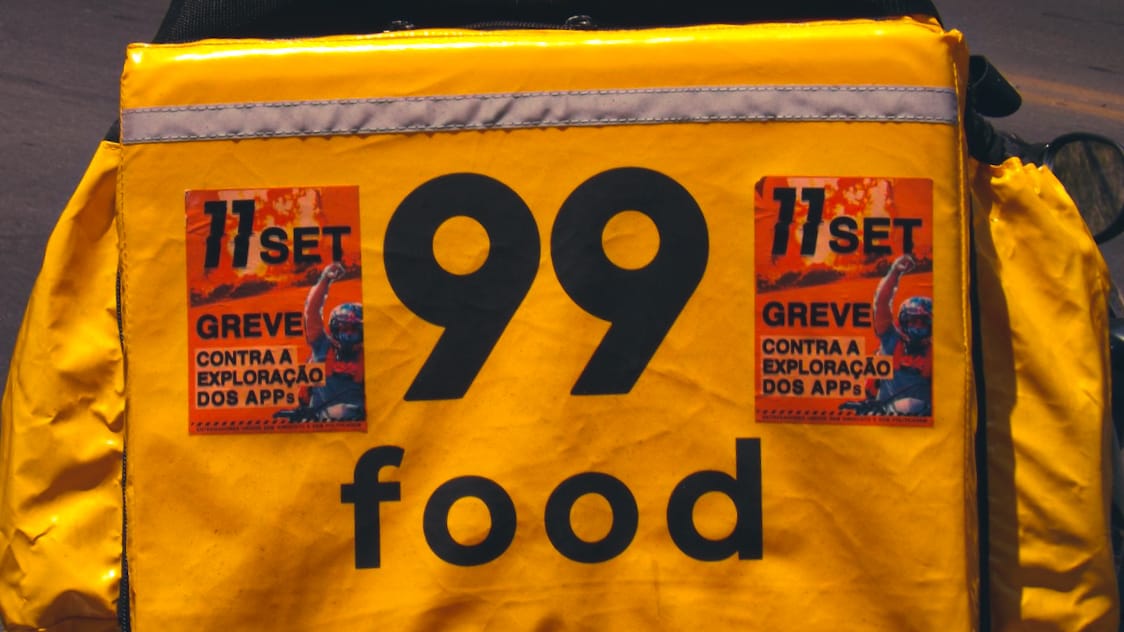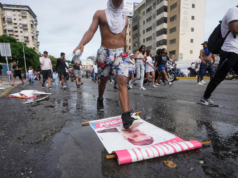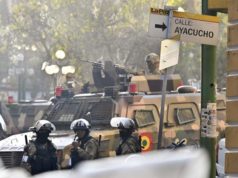By Passa Palavra
On September 11th, the third national work stoppage carried out by app delivery workers, #BrequeDosApps, took place. The demands and the organization were built over months and the day was not a fortuitous choice, since the strike was against “application terrorism”. The common agenda was the raise in payment per kilometer driven, the non-implementation of the scheduling system, and the end of undue blockages with the creation of a confirmation code for each delivery. Different places had different dynamics during the struggle, in addition to more specific demands.
The adherence and size of the mobilizations did not follow the same pattern in each city, but they occurred throughout Brazil, especially in Porto Alegre, Belém, Manaus, Rio de Janeiro, and Ribeirão Preto (São Paulo State).
In João Pessoa the mobilization had a local demand, app delivery worker Kelton Moraes suffered an accident, being hit on the night of September 10 by a car over the speed limit, and died. The demonstration carried out the next day was also in solidarity with the family and denounced the unsafe conditions that delivery workers face. The mobilization did not end on Saturday, as the delivery workers made a great motociata [a motorcade only with motrocycles] on Monday, in honor of the dead colleague.
In places like Uberlândia (Minas Gerais State) the adhesion of motorcyclists was such that the establishments turned off the platforms because there was no one to make the deliveries. In São Paulo City, the region with the greatest adhesion was the Zona Leste [Eastern Zone]: the delivery workers who already knew each other from the delivery pick-up places organized groups that went to places with many delivery workers to warn colleagues that it was the day of breque [work stoppage]. A similar situation happened in cities on the coast of São Paulo. In Guarujá, small groups of motorcyclists circled through the city with banners, shutting the delivery pick-up points. In both cases, the previous relationships between workers, who already knew each other from the same pick-up points, were fundamental for the strike.
However, the place that stood out most was the city of São José dos Campos (São Paulo State). The stoppage in the city has stretched for four days and continues to grow when this text was written. Knowing the points with the largest concentrations of workers, the strikers split up to stay at the entry and exit of the parking lots, which allowed them to approach some worker who was not yet aware of the strike. Given that this would not be enough to paralyze the city, they made groups that circulated and shut the places with fewer workers. At the same time, they agreed not to use the companies backpacks, thus facilitating the identification of those workers who did not adhere to the stoppage, which were then approached by the strikers and convinced to join the strike. This whole organization was potentiated by message groups with hundreds of delivery workers, who exchange information and collectively coordinate the actions to expand the strike. The existence of a group of motorcyclists who put pressure on establishments that mistreated delivery workers created a local dynamic that allowed them to contact the establishments and explain that the fight was against the applications and not against restaurants. This led some establishments to denounce iFood on their social networks. The speech of the delivery workers from São José dos Campos recognizes the importance of the videos and materials sent by colleagues from São Paulo. At the same time, workers recorded messages for colleagues from all over Brazil prompting them to resume the stoppage. São José dos Campos delivery workers say they will only get back to work when app companies make concrete improvements.
Amid this intense mobilization of the working class, leftists seem indifferent. The strike was ignored by most organizations, and even the social network profiles of activists did not promote or share the videos from @tretanotrampo. Leftists criticized the speeches of workers who do not want Bolsonaro, but also do not want Lula, and also complained about the “Motorcyclists without a Union” banner. The left seems more attached to its symbols than to the workers’ struggle. The position put forward by the collective Revolução Periférica — which has as its main public figure the best-known member of the “Anti-Fascist delivery workers” was emblematic of this symbolic blockade and the general state of the left. The collective stated, on September 12, that workers can not participate in strikes and that it would be better to mobilize customers, who should start consuming from restaurants that directly hire delivery workers. Meanwhile, workers continue to create their own forms of organizing strikes.
Translated into English by Marco Túlio Vieira. Read the article in Portuguese here.






